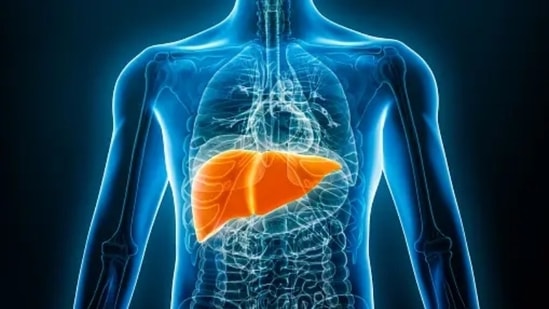What is autoimmune hepatitis? Early signs, risk factors and all that we need to know
From early signs to treatment options, here’s all that we need to know about autoimmune hepatitis.
Autoimmune hepatitis is a condition when the immune system of the body starts to attack the liver instead. Joint pain, abdominal discomfort and fatigue are the most common symptoms of autoimmune hepatitis. In an interview with HT Lifestyle, Dr. Rohit Mehtani. Assistant Professor, Department of Hepatology, Amrita Hospital, Faridabad, said that when the immune system attacks the liver, it can lead to swelling and scarring of the liver. The doctor further explained the early signs, risk factors and treatment options of autoimmune hepatitis.

ALSO READ: Truth about viral hepatitis: Facts, myths and stigma
Autoimmune hepatitis: Early signs
“It may be discovered in an otherwise asymptomatic person, who notices increased AST and ALT levels during routine blood investigations. Patients may also develop acute hepatitis which is characterized by anorexia, fever, nausea, vomiting, myalgias and jaundice. Up to one-fourth of patients of AIH have underlying cirrhosis, i.e. end stage liver disease at the time of first diagnosis. Patients with cirrhosis can present with blood in vomiting or stools, jaundice, fluid in the abdomen or confusion/unconsciousness. The most severe form of presentation is with acute liver failure, in which patients develop confusion, drowsiness or coma after the onset of acute hepatitis,” said Dr Rohit Mehtani.
ALSO READ: World Hepatitis Day: 9 tips for a healthy liver
Autoimmune hepatitis: Risk factors
The exact cause of autoimmune hepatitis is unknown. However, people with autoimmune conditions like vitiligo, type 1 diabetes, autoimmune thyroid disease, rheumatoid arthritis, ulcerative colitis, Lupus, or celiac disease, have an increased risk of developing autoimmune hepatitis.
Autoimmune hepatitis: Diagnosis and treatment
Autoimmune Hepatitis should be considered whenever the cause of liver disease is not clear. Blood tests to check for presence of immunoglobulins (IgG) and auto-antibodies (ANA, SMA, LKM-1, etc.) help in distinguishing AIH from other liver diseases. The treatment of Autoimmune Hepatitis involves medicines like steroids and azathioprine which suppress the immune system, further slowing or stopping the progression of disease and reversing the scarring of the liver. However, patients with advanced cirrhosis and liver failure are advised to go for liver transplant.
Catch your daily dose of Fashion, Taylor Swift, Health, Festivals, Travel, Relationship, Recipe and all the other Latest Lifestyle News on Hindustan Times Website and APPs.
Catch your daily dose of Fashion, Taylor Swift, Health, Festivals, Travel, Relationship, Recipe and all the other Latest Lifestyle News on Hindustan Times Website and APPs.






